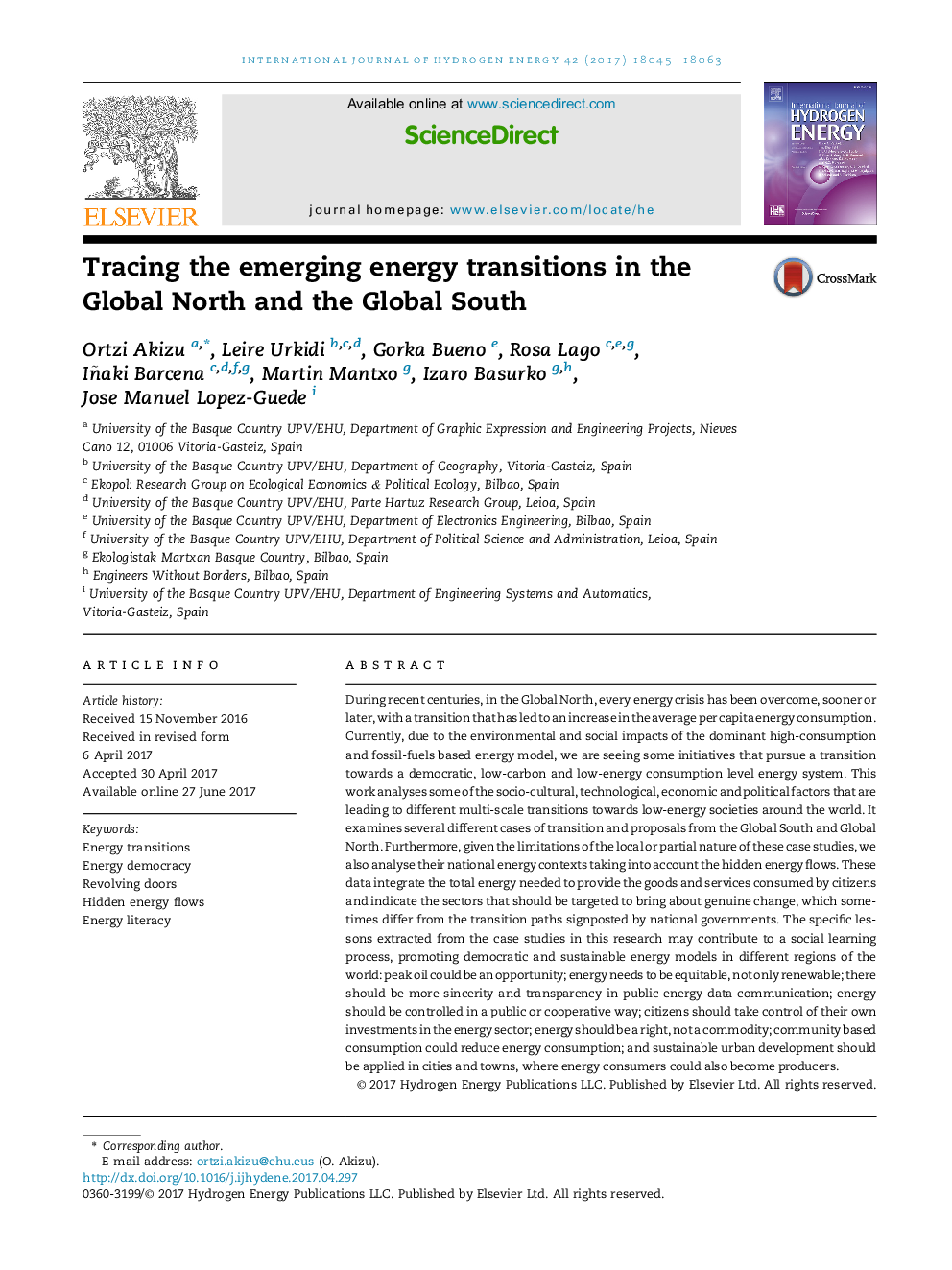| Article ID | Journal | Published Year | Pages | File Type |
|---|---|---|---|---|
| 5145443 | International Journal of Hydrogen Energy | 2017 | 19 Pages |
Abstract
During recent centuries, in the Global North, every energy crisis has been overcome, sooner or later, with a transition that has led to an increase in the average per capita energy consumption. Currently, due to the environmental and social impacts of the dominant high-consumption and fossil-fuels based energy model, we are seeing some initiatives that pursue a transition towards a democratic, low-carbon and low-energy consumption level energy system. This work analyses some of the socio-cultural, technological, economic and political factors that are leading to different multi-scale transitions towards low-energy societies around the world. It examines several different cases of transition and proposals from the Global South and Global North. Furthermore, given the limitations of the local or partial nature of these case studies, we also analyse their national energy contexts taking into account the hidden energy flows. These data integrate the total energy needed to provide the goods and services consumed by citizens and indicate the sectors that should be targeted to bring about genuine change, which sometimes differ from the transition paths signposted by national governments. The specific lessons extracted from the case studies in this research may contribute to a social learning process, promoting democratic and sustainable energy models in different regions of the world: peak oil could be an opportunity; energy needs to be equitable, not only renewable; there should be more sincerity and transparency in public energy data communication; energy should be controlled in a public or cooperative way; citizens should take control of their own investments in the energy sector; energy should be a right, not a commodity; community based consumption could reduce energy consumption; and sustainable urban development should be applied in cities and towns, where energy consumers could also become producers.
Related Topics
Physical Sciences and Engineering
Chemistry
Electrochemistry
Authors
Ortzi Akizu, Leire Urkidi, Gorka Bueno, Rosa Lago, Iñaki Barcena, Martin Mantxo, Izaro Basurko, Jose Manuel Lopez-Guede,
